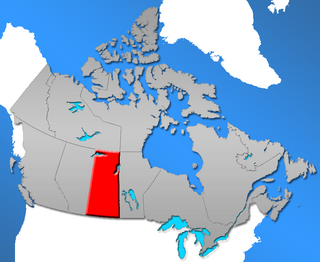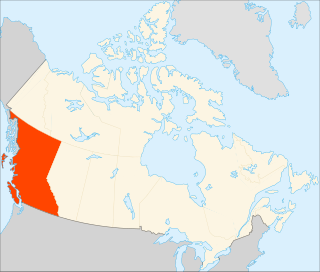
St. Thomas University is a Catholic, English-language liberal arts university located in Fredericton, New Brunswick, Canada. It is a primarily undergraduate university offering bachelor's degrees in the arts, education, and social work to approximately 1,900 students. The average class size is 30 and no class is larger than 60.

Education in Canada is for the most part provided publicly, funded and overseen by federal, provincial, and local governments. Education is within provincial jurisdiction and the curriculum is overseen by the province. Education in Canada is generally divided into primary education, followed by secondary education and post-secondary. Education in both English and French is available in most places across Canada. Canada has a large number of universities, almost all of which are publicly funded. Established in 1663, Université Laval is the oldest post-secondary institution in Canada. The largest university is the University of Toronto with over 85,000 students. Four universities are regularly ranked among the top 100 world-wide, namely University of Toronto, University of British Columbia, McGill University, and McMaster University, with a total of 18 universities ranked in the top 500 worldwide.

Shawn Michael Graham is a Canadian politician, who served as the 31st premier of New Brunswick from 2006 to 2010. He was elected leader of the New Brunswick Liberal Party in 2002 and became premier after his party captured a majority of seats in the 2006 election. After being elected, Graham initiated a number of changes to provincial policy especially in the areas of health care, education and energy. His party was defeated in the New Brunswick provincial election held September 27, 2010, and Graham resigned as Liberal leader on November 9, 2010.
The New Brunswick Liberal Association, more popularly known as the New Brunswick Liberal Party or Liberal Party of New Brunswick, is one of the two major provincial political parties in New Brunswick, Canada. The party descended from both the Confederation Party and the Anti-Confederation Party whose members split into left-wing and right-wing groups following the creation of Canada as a nation in 1867.
The New Brunswick Student Alliance is a student driven organization that advocates for more than 12,000 post-secondary students across New Brunswick.
Kelly Lamrock is a lawyer and political consultant in the province of New Brunswick, Canada. He was previously a Liberal member of the Legislative Assembly of New Brunswick for Fredericton-Fort Nashwaak, and Minister of Social Development in the New Brunswick cabinet before opening Lamrock's Law in Fredericton.

The New Brunswick Federation of Labour is the New Brunswick provincial trade union federation of the Canadian Labour Congress. In 2019 it reported a membership of more than 35,000.
The Government of New Brunswick is the provincial government of the province of New Brunswick. Its powers and structure are set out in the Constitution Act, 1867.

Higher education in Canada includes provincial, territorial, Indigenous and military higher education systems. The ideal objective of Canadian higher education is to offer every Canadian the opportunity to acquire the skills and knowledge necessary to realize their utmost potential. It aspires to cultivate a world-class workforce, enhance the employment rate of Canadians, and safeguard Canada's enduring prosperity. Higher education programs are intricately designed with the perspective of the learner in focus, striving to mitigate risks and assure definite outcomes.

Newfoundland and Labrador has had the same growing pains as other provinces in developing its own form of education and now boasts a very strong, although relatively small, system. The direction of Newfoundland and Labrador's policy has evolved rapidly since the late 1990s, with increased funding, participation rates, accessibility and transferability. Many of the directives the government has been acting upon in the past 10 years have been a result of recommendations that stemmed from a 2005 white paper: Foundation for Success: White Paper on Public Post-Secondary Education. It set the course for furthering the strategic directives of the provincial post-secondary education sector. Some of its recommendations aimed to:

Historically, Saskatchewan's higher education system has been "significantly shaped" by demographics. In 1901, six years prior to the 1907 founding of a university in Saskatchewan, the urban population in Saskatchewan was 14,266 (16%) while the rural population was 77,013 (84%). One hundred years later, the proportions had changed significantly: urban population in 2001 was 629,036 (64%) while the rural population was 349,897 (36%). Over time the province's higher education system has changed significantly in response both to this demographic shift and to provincial politics.

Higher education in Alberta refers to the post secondary education system for the province of Alberta. The Ministry of Advanced Education in Alberta oversees educational delivery through universities, publicly funded colleges, technical institutions, and private colleges. These institutions offer a variety of academic and vocational pursuits. Students have access to post-secondary options through most regions of Alberta, and a developed articulation system allows for increased student mobility.

Higher education in Prince Edward Island refers to education provided by higher education institutions in the Canadian province of Prince Edward Island. In Canada, education is the responsibility of the provinces and there is no Canadian federal ministry governing education. Prince Edward Island has two post-secondary institutions authorized to grant degrees: one university, the University of Prince Edward Island, and one college, Maritime Christian College. There are also two community colleges: Holland College, which operates centres across the province, and Collège de l'Île, which offers post secondary education in French. The governing body for higher education in Prince Edward Island is the Department of Innovation and Advanced Learning, headed by the Minister of Innovation and Advanced Learning, the Honourable Allen Roach.

Higher education in New Brunswick refers to education provided by higher education institutions in the Canadian province of New Brunswick. Higher education has a rich history in New Brunswick. The first English-language university in Canada was the University of New Brunswick. Mount Allison University was the first in the British Empire to award a baccalaureate to a woman, Grace Annie Lockhart, B.Sc. in 1875. Education is the responsibility of the provinces in Canada and there is no federal ministry governing it.

Higher education in Nova Scotia refers to education provided by higher education institutions. In Canada, education is the responsibility of the provinces and there is no Canadian federal ministry governing education. Nova Scotia has a population of less than one million people, but is home to ten public universities and the Nova Scotia Community College, which offers programs at 13 locations.

Higher education in British Columbia is delivered by 25 publicly funded institutions that are composed of eleven universities, eleven colleges, and three institutes. This is in addition to three private universities, five private colleges, and six theological colleges. There are also an extensive number of private career institutes and colleges. Over 297,000 students were enrolled in post-secondary institutions in British Columbia in the 2019-2020 academic year.

Blaine Myron Higgs is a Canadian politician who is the 34th and current premier of New Brunswick since 2018 and leader of the New Brunswick Progressive Conservative Party since 2016.
Manitoba Advanced Education and Training is the department of the Government of Manitoba responsible for supporting adult learning, post-secondary education, and vocational training in Manitoba.
The education system of New Brunswick comprises public and private primary and secondary schools and post-secondary institutions. By the British North America Act, 1867, education falls entirely under provincial jurisdiction. There is no federal government department or agency involved in the formation or analysis of policy regarding education. Also by constitutional right, Roman Catholics are entitled to their own school system; this led in New Brunswick to contention in the early years of the nation, and, in 1871, to the first case sent from Canada to the Judicial Committee of the Privy Council, Maher v Town Council of Portland.













